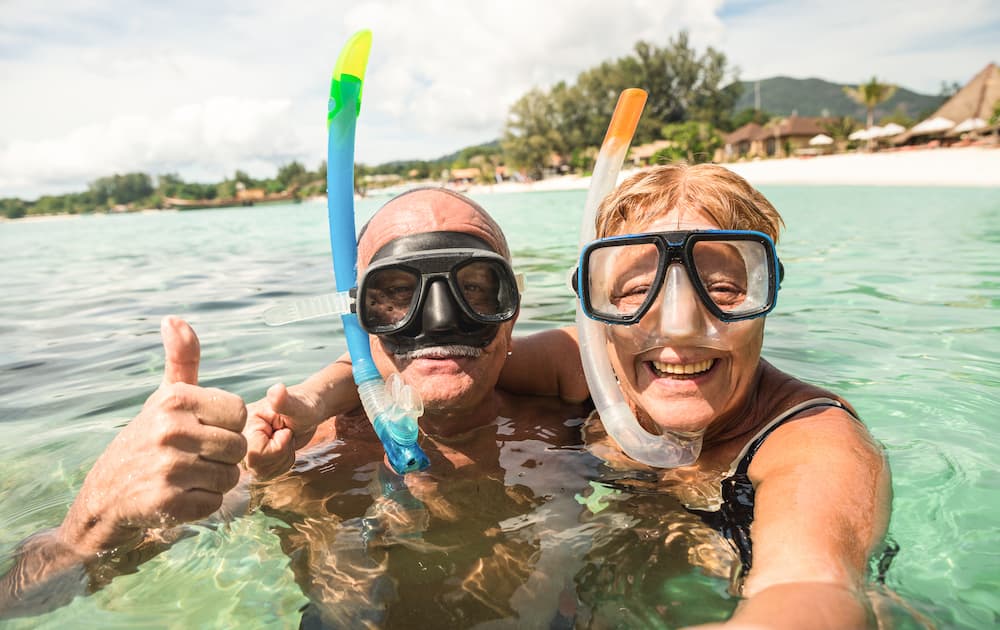Traveling can be a rewarding experience at any age, offering opportunities to explore new places, reconnect with loved ones and create lasting memories. For seniors, thoughtful planning is essential to ensure safety, comfort and enjoyment throughout the journey. Here are some travel tips tailored to help seniors make the most of their adventures:
1. Check on Travel Health Recommendations
Before embarking on your trip, familiarize yourself with the latest public health advisories related to your destination. The Centers for Disease Control and Prevention (CDC) provides up-to-date travel health notices, safety tips and checklists to help travelers stay informed and prepared.
2. Select Accommodations That Suit Your Needs
When booking accommodations, ensure the hotel or lodging you choose can cater to your specific requirements. Contact the establishment directly to inquire about accessibility features such as elevators, wheelchair ramps or ground-floor rooms to enhance your comfort during the stay.
3. Limit Sharing Your Travel Plans on Social Media
While it’s tempting to share your travel excitement online, consider refraining from posting details about your trip on social media platforms. Publicizing your absence can inadvertently signal to potential intruders that your home is unoccupied, increasing the risk of burglary.
4. Familiarize Yourself With TSA Regulations
Understanding Transportation Security Administration (TSA) guidelines can streamline your airport experience. Keep medications in their original labeled containers and pack them in your carry-on luggage to ensure easy access and prevent loss.
5. Maintain Health During Air Travel
Long flights can be taxing. To promote circulation and reduce the risk of deep vein thrombosis, take short walks in the aisle when possible. Staying hydrated by drinking plenty of water and minimizing caffeine and alcohol intake can also help maintain your well-being during the flight.
6. Avoid Drawing Attention to Valuables
Minimize the risk of theft by keeping expensive jewelry and electronics out of sight. Use a money belt or neck pouch to securely store cash, passports and credit cards, especially in crowded areas.
7. Keep Essential Documents Accessible
Carry copies of important documents such as your passport, travel insurance, medical information and emergency contacts. Store these separately from the originals to expedite replacements if needed. In addition to carrying copies, consider scanning important documents and storing them securely online or on a USB drive for easy access in case of loss or theft.
8. Manage Medications Effectively
Ensure you have an adequate supply of all necessary medications for the duration of your trip, plus a few extra days’ worth in case of delays. Keep a list of your medications, dosages and prescribing doctors with you.
9. Stay Hydrated
Dehydration can exacerbate fatigue and other health issues. Carry a refillable water bottle and drink fluids regularly, especially in warm climates or during air travel, where the cabin air can be particularly dry.
10. Understand Your Travel Itinerary
Keep a detailed itinerary with addresses and contact information for your accommodations, transportation and planned activities. Share this information with a trusted friend or family member not traveling with you.
11. Pack Efficiently
Opt for lightweight, versatile clothing that can be layered to adapt to varying weather conditions and temperatures. Packing light eases the physical strain of handling luggage and leaves room for souvenirs.
12. Assess the Feasibility of Your Trip
Be realistic about the physical demands of your planned activities. Choose excursions and destinations that align with your mobility and endurance levels to ensure an enjoyable experience.
13. Arrive Early
Allowing extra time for airport check-ins, security screenings and boarding can reduce stress and provide a buffer for any unforeseen delays.
14. Use Luggage Assistance Services
Consider using luggage delivery services or requesting assistance at the airport to manage your bags, reducing physical strain and the risk of injury.
15. Exercise Caution With Public Wi-Fi
Public Wi-Fi networks can be insecure, making your personal information vulnerable. Use a virtual private network (VPN) or avoid accessing sensitive accounts when connected to public networks.
16. Seek Out Senior Discounts
Many travel services offer discounts for seniors. Inquire about reduced rates for transportation, accommodations and attractions to make your trip more affordable.
17. Consider Purchasing Travel Insurance
Travel insurance can provide coverage for trip cancellations, medical emergencies and other unforeseen events, offering peace of mind. Evaluate policies carefully to choose one that best fits your needs.
18. Consult Your Physician Before Traveling
Discuss your travel plans with your healthcare provider, especially if you have chronic conditions or are traveling to areas with specific health risks. They can offer advice tailored to your health needs and ensure you’re prepared for a safe journey.
By incorporating these tips into your travel planning, you can enhance your safety, comfort and enjoyment, making your journey a fulfilling and memorable experience.
Experience senior living redefined at The Vered— where old Hollywood glamor meets modern senior living. Our beautifully designed, six-story community will offer more than just a place to live — it will be a lifestyle centered on elegance, dignity and engagement. Whether you’re seeking assisted living or memory care, you’ll find a welcoming space that feels like home. Reach out today to connect with our team.
Featured Image: View Apart / Shutterstock

